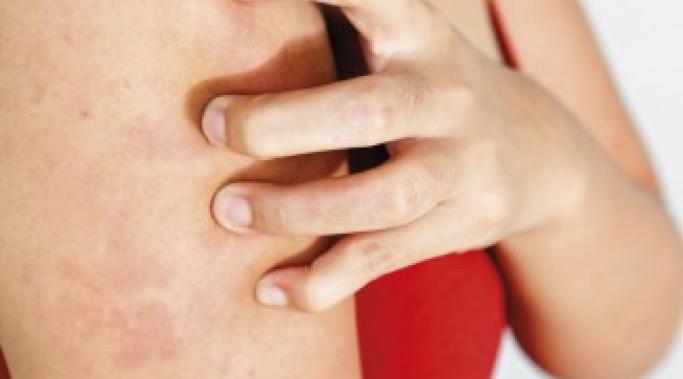Blogs
Drug and alcohol addiction are very common. People who struggle with mental disorders may also face substance addiction in their lives. Personally, I tried using drugs to cope with my dissociative identity disorder (DID) and extreme feelings. The drugs numbed the pain and calmed my anxiety, for a while. What I didn't realize is that drug addiction can be just as painful as mental illness and that using drugs, eventually, makes mental illness much worse.
In this day and age, many people turn to the Internet for answers, including looking for answers on skin picking and self-harm on the Internet. If there are websites and articles that can give you the knowledge you are seeking, why not take advantage of it? It is very easy to grab a hold of answers with the click of the button and to be able to have this kind of power can be thrilling. However, it is important to make sure that the power you hold is positive when it comes to self-harm and skin picking on the Internet.
Self-care is a term widely used in recovery from depression, but it's rarely defined by the health care professionals who recommend it for relief of depression symptoms. Over the years, I've learned what kind of depression self-care works for me. Here are some examples that will help you find your own steps to self-care for depression.
In recovery, unrealistic expectations and resentments can pose a problem; maintaining sobriety is much more than simply not drinking one day at a time. Certainly, that's all most alcoholics can handle at first. But to be truly happy in sobriety, recovering alcoholics eventually have to work on developing emotional sobriety. One of the biggest culprits affecting my emotional sobriety is resentment towards others. I have also been warned that resentments often lead to addiciton relapse if not dealt with and resolved. Here I discuss managing sobriety expectations and resentments.
There's a popular conception in society about what eating disorders are and how they function. At best, these ideas are a piece of the puzzle, at worse, they're totally inaccurate. So what does binge eating disorder look like and how do we treat people in society that have it? There is no one right answer to what binge eating disorder looks like and realising this will help with the second.
You have anxiety. What does anxiety say about you? When we live with anxiety, we worry--often a lot. We can experience great fear, both rational and irrational. Do you ever worry that your anxiety is obvious to the entire world and that the entire world is pointing and judging? That's actually a fairly common concern among people who experience anxiety. Perhaps, though, the worry about what anxiety says about you is a worry you can put to rest.
As people with anxiety, it's easy for us to succumb to the idea that everything we do has to be perfect. Think about it. It makes sense. If you believe, as I often do, that you're a failure, that people just generally don't like you, and that you're basically incapable of doing anything right, then why wouldn't you become a perfectionist? It's an understandable, albeit maladaptive, response to feelings of fear, loneliness, and alienation. But, there are three big problems with trying to be perfect: it's impossible, it paralyzes you, and it makes your life a living hell. Here's how to escape the hell of perfectionistic paralysis.
Last week’s Anxiety-Schmanxiety blog post was titled, Five Ways to Relieve Anxiety You’ve Never Thought Of, and included unique suggestions like playing with Play-Doh and teaching yourself to juggle. When I originally made the list of unusual ways to relieve anxiety, the list included eight suggestions, not the five that made it to print. Leaving those three suggestions off just didn’t feel right to me, so here are three additional ways to relieve anxiety.
Posttraumatic stress disorder, or PTSD, is an anxiety disorder that develops as a result of a traumatic event. According to Dr. Aphrodite Matsakis, PTSD occurs in 2% of those exposed to an accident, 25 -33% of those exposed to a community disaster, 25% of those who experience traumatic death of a friend or loved one, 30% of Vietnam veterans, 65% of those assaulted, 84% of battered women, and 35-92% of rape victims. Flashbacks are a common symptom of PTSD. Here's to use coping skills to fight the flashback symptom of PTSD.
Let’s face it, side effects happen to almost everyone who takes medication for bipolar disorder. Bipolar medication side effects can range from annoying, to painful, to downright intolerable. But how does one deal with bipolar medication side effects?









I believe she will only be able to rid herself of her demons, and hopefully her BPD as well, when she's ready to confront the abuse of her father. If she can put the blame where it belongs, she may stop projecting that victim/perpetrator cycle on the present men in her life. These demons are a metaphor for the purgatory she has created for herself. That reality has consequences in the real world, but it need not be real in the tangible sense. Exorcising her demons will require the expenditure of real physical energy and probably the destruction of aspects of her personality. If this ever happens, and it's possible but not probable, then these demons will evaporate. They are only as real as one's personality is real. In short, reality is not the question, it's what you make of the things you feel to be real.